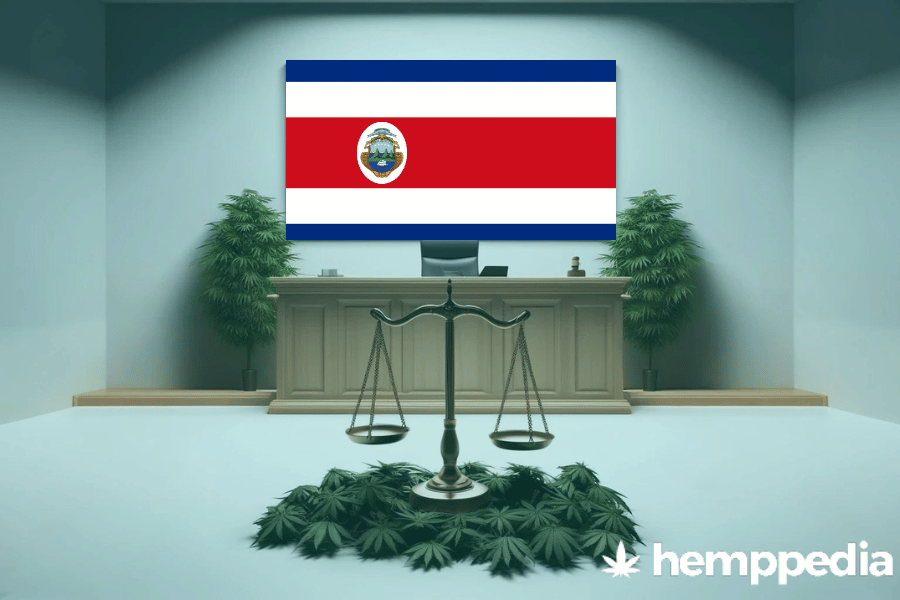Is Cannabis Legal in Costa Rica?
TL;DR: As of 2022, the legal status of cannabis in Costa Rica remains somewhat ambiguous, but largely prohibitive. Recreational use of cannabis is illegal but decriminalized, meaning it is technically against the law, but penalties are light. Medical use is not yet legally recognized and CBD legality is also still under discussion. Production and sale remain strictly illegal.
| THC | CBD | |
|---|---|---|
| Recreational | Illegal but decriminalized | Under discussion |
| Medical | Not recognized | Under discussion |
Introduction
With the global trend towards decriminalization or legalization of cannabis use, it’s vital to understand the current legislation in the specific regions you’re interested in. To give an accurate picture of this situation in Costa Rica, this article will include a thorough analysis of legal definitions, historical context, legal enforcement, societal impacts, and relevant ongoing debates regarding cannabis use in the country.
Overview of Cannabis Legislation
While some nations continue to liberalize their cannabis laws, others remain stringent, reflecting a diverse global landscape. In terms of cannabis legislation, legalization generally refers to the allowance of the sale, purchase, possession, and consumption of cannabis under specified regulations. Decriminalization, on the other hand, refers to the removal of criminal charges associated with cannabis use, although its sale and production may still be illegal. The terms medical use and recreational use refer to cannabis being used for therapeutic purposes or purely for enjoyment, respectively.
Costa Rica Specific Legal Details
Legal Status
In Costa Rica, recreational cannabis use is decriminalized but not legalized, while medical use is not currently recognized under the law. The cultivation, sale, and distribution of cannabis remain illegal. Reference: www.loc.gov
Historical Context
Despite a growing global trend towards cannabis decriminalization and legalization, Costa Rica remains relatively traditional in its perspective. Historically, cannabis use has been criminalized, with strict penalties for possession and distribution.
Possession and Use
The recreational use of cannabis in Costa Rica is decriminalized, meaning people caught with small amounts are not typically prosecuted. Nonetheless, public consumption is typically frowned upon, and can potentially lead to more serious sanctions. The legal age for possession and use remains ambiguous due to the lack of explicit legislation.
Cultivation and Distribution
The cultivation and distribution of cannabis for both recreational and medicinal purposes is currently illegal in Costa Rica, regardless of the amount or intent. Cannabis dispensaries or clubs are therefore non-existent under Costa Rica’s current laws.
Enforcement and Penalties
Costa Rica’s enforcement of cannabis law tends to focus more on trafficking than on personal use. Penalties for possession tend to be light, typically involving small fines rather than incarceration. However, severe penalties, including jail time, can be incurred for trafficking or cultivating cannabis.
Medical Cannabis
Medical cannabis is currently not recognized under Costa Rican law, and there are no processes in place for obtaining cannabis for medical purposes. However, discussion about the potential therapeutic benefits of cannabis, especially CBD, is ongoing.
Social and Economic Impact
Studies on the social and economic impacts of cannabis legislation in Costa Rica are sparse, given the somewhat ambiguous legal status of the substance. Furthermore, public health considerations, impact on crime rates, and potential economic benefits remain largely speculative and under-researched.
Comparative Analysis
In comparison to other Latin American countries, Costa Rica is relatively conservative in its approach to cannabis laws. While countries like Uruguay and Argentina have taken steps towards legalization, Costa Rica remains hesitant.
Future Outlook and Ongoing Debates
The future of cannabis legislation in Costa Rica remains uncertain. There are ongoing debates about the potential benefits of cannabis for health and the economy, but so far these have not led to changes in legislation.
Conclusion
While the worldwide trend towards cannabis legalization continues, Costa Rica remains a country where the use, possession, and sale of cannabis are not fully legalized. However, the nation’s attitude toward the personal recreational use of cannabis suggests a hint of leniency that could change the landscape in the future.





